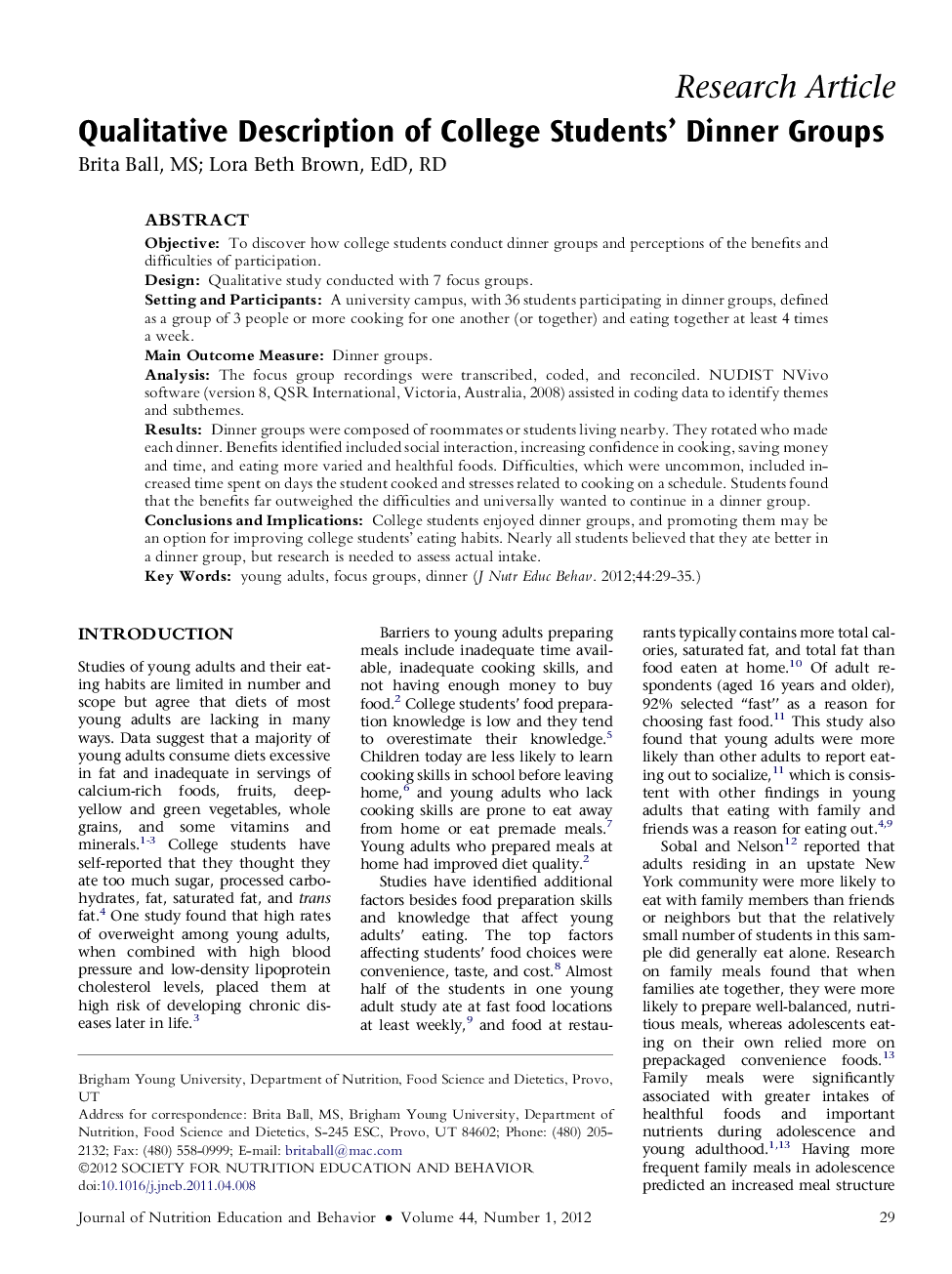| Article ID | Journal | Published Year | Pages | File Type |
|---|---|---|---|---|
| 362423 | Journal of Nutrition Education and Behavior | 2012 | 7 Pages |
ObjectiveTo discover how college students conduct dinner groups and perceptions of the benefits and difficulties of participation.DesignQualitative study conducted with 7 focus groups.Setting and ParticipantsA university campus, with 36 students participating in dinner groups, defined as a group of 3 people or more cooking for one another (or together) and eating together at least 4 times a week.Main Outcome MeasureDinner groups.AnalysisThe focus group recordings were transcribed, coded, and reconciled. NUDIST NVivo software (version 8, QSR International, Victoria, Australia, 2008) assisted in coding data to identify themes and subthemes.ResultsDinner groups were composed of roommates or students living nearby. They rotated who made each dinner. Benefits identified included social interaction, increasing confidence in cooking, saving money and time, and eating more varied and healthful foods. Difficulties, which were uncommon, included increased time spent on days the student cooked and stresses related to cooking on a schedule. Students found that the benefits far outweighed the difficulties and universally wanted to continue in a dinner group.Conclusions and ImplicationsCollege students enjoyed dinner groups, and promoting them may be an option for improving college students’ eating habits. Nearly all students believed that they ate better in a dinner group, but research is needed to assess actual intake.
